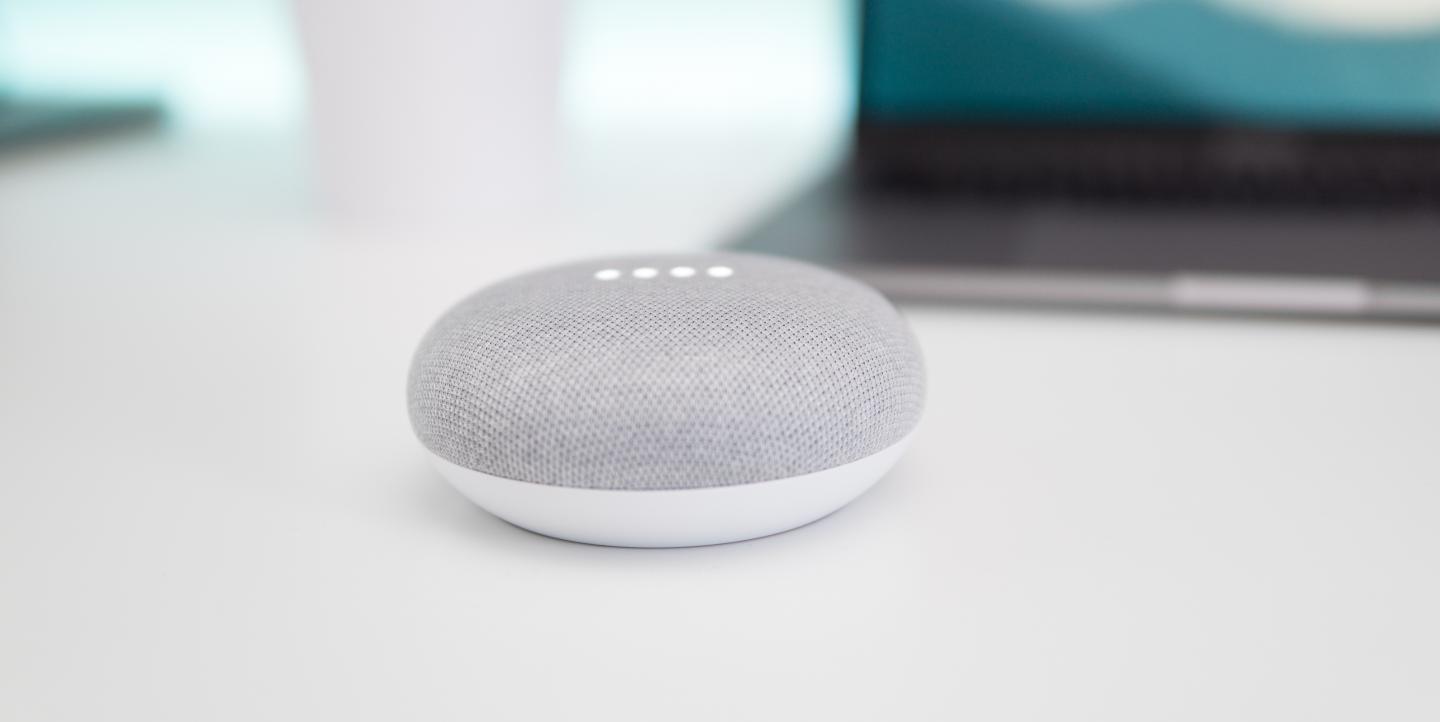People like smart speakers, but there are a lot of things they don’t like about news on smart speakers.
As recent research by Nic Newman — published by the Reuters Institute for the Study of Journalism, and written up by us here — shows, consumers aren’t the biggest fans of the sort of news briefings that publishers have been pushing out. Common complaints: The briefings are too long. They’re not updated frequently enough. They’re too repetitive; when bulletins from different news providers run together, stories get duplicated. And it’s hard to skip stories you’re not interested in — or hear more of the kind that you are.
Google is hoping to address some of these concerns with a new experiment, announced Dec. 6, that will deliver more personalized audio news feeds through Google Assistant. “We are combining Google News with the interactivity and voice experience of Google Assistant,” said Liz Gannes, a former reporter for Recode, Gigaom, and AllThingsD who is leading the initiative. The company has spent the past year working with around 130 publishers to build a prototype of a news radio station that customers can control — using voice to skip stories, go back, or stop and dive further into a given topic. It’s built using each story as an individual chunk, rather than a briefing of stories chunked together.
“Imagine if you ask for news and get a quick update on the stories of the moment, then you get stories that speak to your personal preferences and interests. It’s like your radio station,” said Gannes.
“To benefit the industry as a whole, we have together drafted an open specification for single-topic story feeds,” Google wrote in a blog post announcing the effort. “We have also worked closely with publishers” — including the Associated Press, CBS Local, and KQED — “to develop ways for an aggregated audio feed to serve as a discovery platform for their owned-and-operated sites.” Google is now looking for more publishers to submit their single-topic story feeds and try the technology.
Longtime observers of podcasting may recognize some of this new effort’s DNA from a couple other recent projects. The idea of assembling a rolling, radio-like feed out of individual stories and segments was key to the startup 60dB, which promoted itself two years ago as a “service for high-quality, short-form stories,” with an emphasis on short. There the connection is genetic — Google acqui-hired 60dB’s team, including Gannes, a little over a year ago, and this is something of a successor product. At the time, Nick Quah wrote about the aim of 60dB — a company started by former Netflix employees as well as NPR veteran Stephen Henn:
The nature of the solution is twofold: (1) to usher in an audio creation environment in which the atomic unit of content is not an individual episode (whose lengths, as any podcast listener can tell you, range widely) but a short, individual story piece; and (2) to match listeners with appropriate stories through ‘algorithmic personalization’…
The theoretical upside for publishers is also familiar: in theory, these short-form audio pieces, should publishers choose to produce them, will (presumably) be consumed by more listeners as a result of these solved inefficiencies.
The other clear antecedent to Google’s effort is NPR One, the public broadcaster’s popular app that also itemizes individual stories into streams that can be personalized based on user behavior. About 19 percent of NPR streaming now goes through smart speakers, up from just 4 percent a year ago.
“News on smart speakers is not living up to the promise of what it could be,” Gannes told me. “Publishers are super savvy about smart speakers, but they don’t necessarily feel that they have the development resources to build the whole thing for themselves.” Smaller outlets, for instance, may not have been able to experiment with voice because of the infrastructure and skill required to produce audio; the hope is that if Google helps on the tech end, more publishers will be able to get their content out.
Google will offer participating publishers some analytics — to start, how and where people are listening. Some advertising will also be added eventually. “We have made a commitment to participating publishers that we do expect to monetize this product and support their existing monetization methods,” Google spokesperson Maggie Shiels told me.
Like Google News, this audio venture will ultimately be available to pretty much any news publisher that can work with Google’s open standard and adheres to Google News’ basic (and vague) content standards.
“We want to balance inclusivity with making sure that we’re delivering a real news product and not something that misleads users,” Gannes said. “We’re balancing personalization and giving people what they want with the fact that this is a news product, so we want to tell you what we think are the top stories of the day, based on what the top outlets are telling us are the big stories of the day.”
This article was originally published by NiemanLab. It was edited and republished on IJNet with permission.
Main image CC-licensed by Unsplash via Kevin Bhagat.

